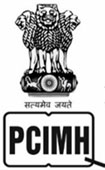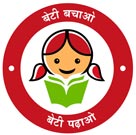Designed & Developed by M/s Akiko Sherman Infotech, Hosted by NIC/NICSI Content Provided by Pharmacopoeia Commission for Indian Medicine & Homoeopathy
Siddha
The Siddha system of medicine is mainly practised in the Southern part of India. It is one of the earliest traditional medicine systems in the world which treats not only the body but also the mind and the soul. The word Siddha has its origin in the Tamil word Siddhi which means "an object to be attained" or "perfection" or "heavenly bliss". The roots of this system are intertwined with the culture of ancient Tamil civilization.
"Siddhargal" or Siddhars were the premier scholars of this system in ancient times. Siddhars, mainly hailing from Tamil Nadu laid the foundation for Siddha system of medicine. Hence, it is called Siddha medicine. Siddhars were spiritual masters who possessed the ashta (eight) siddhis or unique powers. Agastyar or Agasthya, is believed to be the founding father of Siddha Medicine. This system connects both spiritual and physical and treats the person as a whole i.e. it concentrates the physical, psychological, social and spiritual well-being of an individual.
In Siddha, raw drugs are categorized based on their origin, into the following classes:
- Plant origin (Mooligaivaguppu)
- Metals and Minerals (Thathuvaguppu)
- Animal origin (Seevamvaguppu)
Siddha section of PCIM&H coordinates with Siddha Pharmacopoeia Committee and publishes official Formularies and Pharmacopoeias of Siddha. These formularies and pharmacopoeias are official compendia of standards under the Drugs and Cosmetics Act, 1940. These prevail as quality standards that has to be followed by any Siddha manufacturing industry which shall in turn ensured by respective regulatory authorities of Central and State Governments.
Activities
- To provide technical support to Siddha Pharmacopoeia Committee (SPC) and subcommittees under Scientific Advisory Board (SAB) of PCIM&H
- To provide technical support to manufacture of compound formulations of Siddha medicine, characterization and providing classical references
- Developing Standard Operating Procedures (SOPs) of Siddha drugs
- Technical review and support to publish Siddha Pharmacopoeia of India (SPI) for single drugs and Siddha Formulary of India (SFI)
- Research & Development and publishing related scientific information
- Any other technical and non-technical work pertaining to Siddha













